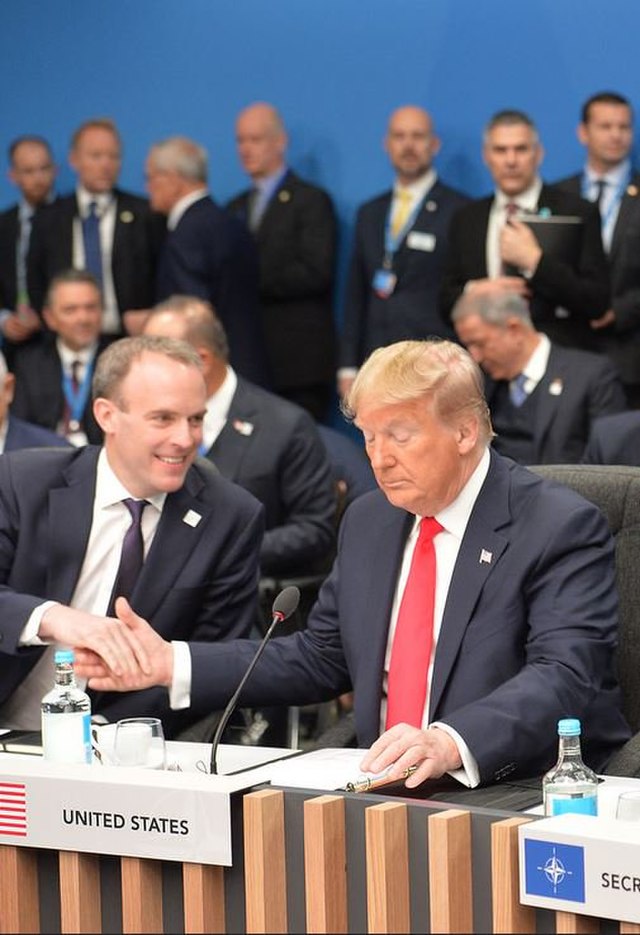Can NATO withstand Donald Trump’s rhetoric – or worse?

Donald Trump at a NATO summit during his tenure as president, 2019.
Jonah Carlson - Recent comments by former president and presidential nominee Donald Trump have caused a stir in both European and American defense circles. Vanessa Gera explores the comments in a recent article with the Associated Press, as well as the potential repercussions of such comments – especially in the case of a second Trump presidency.
The comments regarded the position of the United States in NATO, the country’s largest military alliance. The United States is by far the largest contributor to NATO in terms of material power – that’s tangible things, like weaponry, ammunition and spending dollars. NATO encourages its members to spend at least 2% of their GDP on defense, a number as many as 19 member states fail to reach. Trump’s comment regarded these members specifically, saying that if any state failed to “pay [its] bills,” he would “encourage them [an adversary, believed to be a reference to Russia] to do whatever the hell they want” with that state. That comment has called a potential Trump administration’s commitment to NATO’s Article V, the collective defense element of the NATO alliance, into question. Gera notes that Jens Stoltenberg, NATO’s Secretary-General, was sufficiently displeased to make a statement about the comment, saying that “any suggestion that allies will not defend each other undermines all of our security… and puts American and European soldiers at increased risk.”
The comment highlights the significance of the upcoming U.S. presidential election. The NATO alliance is a longstanding element of the United States’ geopolitical code, not only for the European continent but globally. Comments from both Trump itself and advisors to Trump from his former administration had made it uncertain whether he would continue that geopolitical tradition if given the opportunity at a second term. Such uncertainty may encourage a shift in the geopolitical codes of European states, with each choosing to raise their own spending on defense. Perhaps that is exactly what Mister Trump’s rhetoric is aiming to encourage: by threatening the withdrawal of American support, the whole alliance might “pay the bills.” But that same rhetoric also puts the alliance on edge and gives credence to NATO-skeptics across the alliance, putting the longevity of Europe’s 80-year alliance into jeopardy. For now, the ultimate fate of NATO remains unclear.
Photo source. Office of U.S. Ambassador to U.K., Public domain, via Wikimedia Commons.

